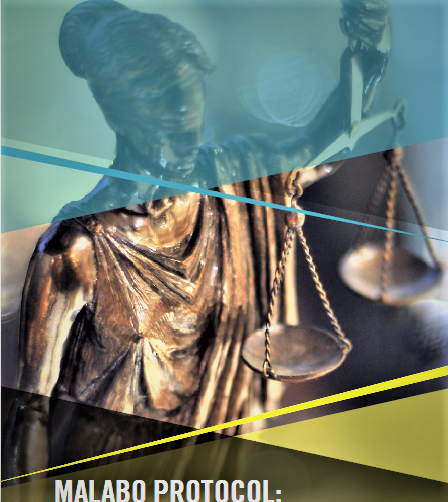Teresa Mutua
There is a saying in my culture that loosely translates to “do not mediate problems between two people who share one bed, you will end up as the enemy!”. But what to do when I am the maid of honour in my sister’s wedding? At first instance, maybe I can be satisfied with wearing a different colour of dress from other bridesmaids to make sure everyone knows who I am- and of course signing the marriage certificate as a witness to the marriage. But when my sister, my very-close-to-my-heart sister, comes to me distressed and says that her husband has been beating her and saying unkind words to her, then what? Of course, with my big feminist head (read this as my mother says it- it is not a complement) I would move swiftly to pack my sister’s bags, she would move in with me- and not before I’ve said a few words to that husband of hers- then I would sue the safeword out of that man! You can relate, right? What you also relate with, is the all-so-many times that women like my sister- or me- or you for that matter- reconcile with their partners; and…wait for it…blame the maid of honour for being the cause of their drift! So my ancestors were right. Were they?
And while I can read your angry thoughts as to why I would bring up the illustration above- or that the story above is much more complicated, I find that this illustration allows us to empathize with the judiciary- who I now call the maid of honour! Think about it, the Chief Justice and the Chief Registrar on his side, witness the coming in of a new government- the groom in my illustration. The electorate get to weigh and decide through voting (I know, this is complicated too whether electorate really decide through voting- but so is the question of whether the bride in a marriage really decides who to marry. Hence the comparison, you see?). After the marriage of the elected and the electorate, and after the honeymoon phase, the elected begin to show their true colours! The massive corruption and greed, denial of essential services (that they promised to give), violation of human rights, et cetera. When this happens, the electorate run to the judiciary distressed- seeking relief for the harm done by the government. But what do we see so often? A ganging up of the elected and the electorate- and both looking at the judiciary as the enemy- the animal who caused the drift.
Judiciary, the maid of honour. That should have been the title to this piece. But the communications officer was very specific- I must write an article to answer the question “is the judiciary under attack?” The simple answer- at least to me- is yes. It always has been and always will be under attack. Yes, because it is the maid of honour. To engage is to be vulnerable to attack.
This article is not meant to be long. Or academic! So in the next few paragraphs of so, let me remind us of the position the judiciary finds itself in.
The government does not have power to do this, has violated that, has not fulfilled this…and over and over again, the court has said “stop it, you must do what you promised to do, consult with the people…”.
The corona virus is spreading fast, and our government has allowed a Chinese craft to come into Kenya. The citizenry is not happy, in fact, they are upset that the government would make such a decision. What do they do? Run to court and ask for help against the government. The court gives an order stopping flights from China into Kenya. “Are you happy now? I have your back” says the judiciary to the people. But give it a few days or months and you’ll see how the judiciary will be attacked for this decision.
Now let me introduce you to a bride in the name of “Kenya Now”. And this is purely because the initiative purports to speak with the voice of Kenyans and because I have studied their Facebook page and find my assessment really amusing (not in a funny way). I call it the October 2018 attack.
The Facebook page gains life on 18th of October 2018 at 3.33pm with a profile picture, then a cover photo, website update, you know the drill. At 3.43pm, we see the first post and it is on what a thriving economy we have- and how the world bank agrees on this. On 19th October, the judiciary is in trouble! 20th October, the page goes on a Mashujaa drive. I note the Director of Public Prosecution (DPP) and quite a few policemen make it into the Kenya Now hall of fame. No judge, no magistrate, no judiciary clerk. 22nd October, the page informs us on the progress of the Standard Gauge Railway- never mind that they are not up in arms about the billions of moneys said to have been lost in the project. 23rd October, back to the judiciary, where the page faults the judiciary for loosing files in the Kenya Power and Lighting Company (KPLC) case. The page attacks the credibility of the judge who was handling that matter, while exonerating- in fact commending the DPP for his good defence and objection to the application for bail/bond- faults the judiciary for not listening to the DPP. 24th October, we’re back to praising our thriving economy and paste a video of Richard Quest of CNN confirming this position. 25th October, judiciary attack. The judiciary is blamed for the Molo road accident. Because how dare they set free the bus driver and owner on bail? In fact, it concludes with a call for action- that members of the public should not take their grievance to court, “we are on our own” the page writes. On that note, the page died. But not before the page replays a TBT (if you don’t know what this means, I’m sorry!) by former president Hon. Mwai Kibaki, calling a whole bunch of things “Bure Kabisa!”
And before you ask why I searched archives to find a page in 2018, let me explain. I received a WhatsApp message (forward rather) of a video titled “Guilty Until Proven Rich”. The title is catchy so of course I play the video. In a very cunning way if you ask me, the video contrasts the case of poor python guy to the rich Obado, Sonko, Mwilu and Babu cases. This video says that the man found with the python (which they conclude is poor) was jailed in just two days. Quick justice. Yet the cases of Obado, Sonko, Mwilu and Babu (who they conclude are a representative of the rich) still have their cases in court- and are therefore not in jail. So you understand my curiosity in wanting to understand why anyone would be bent on taking situations and turning them to suit their narrative. I had to find out if this person (or people) were angry with just the judiciary or with all arms of government. I had my answer.
So, should the judiciary not engage? Should it not make the decisions that it makes (and here we mean good decisions!)? I think not. Will this lead to attacks and more attacks? Yes.
This is not doom.
The judiciary, understanding its position, should establish mechanisms to safeguard itself against these attacks. That should probably be my next article, “countering judiciary attacks” or something.
Now, if this was a lovers’ letter in high school, this would be the point I pen off and apply some cheap perfume on the letter. Then end with a song dedication!
Ps. Please listen to Can’t help but wait by Trey Songz https://youtu.be/iF_JBlSh_G8
Teresa Mutua works at ICJ Kenya as the Programme Manager, Democratic Governance and Rule of Law Programme. She is an Advocate of the High Court of Kenya of 6 years standing.











